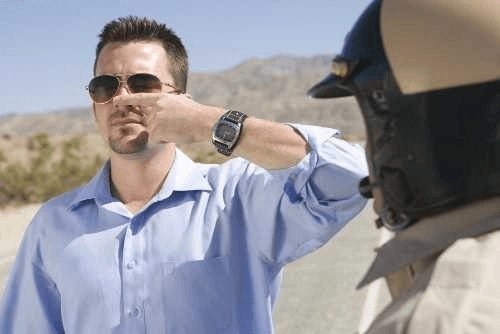Karnes County, Texas, is known for its rich history and vibrant community. However, like any other region, it is not immune to the challenges posed by impaired driving. In an effort to maintain public safety on the roads, law enforcement employs various measures, one of which is the Field Sobriety Test. If you find yourself in a situation where you are subjected to this test, it’s crucial to understand what to expect and the requirements associated with it.
Understanding the Field Sobriety Test:
The Field Sobriety Test (FST) is a series of standardized assessments used by law enforcement officers to gauge a person’s level of impairment due to alcohol or drugs. In Karnes County, Texas, as in the rest of the state, these tests are typically administered during traffic stops if an officer suspects a driver is operating a vehicle under the influence.
The Three Standardized Field Sobriety Tests:
Horizontal Gaze Nystagmus (HGN): This test involves the officer observing the driver’s eyes as they follow a moving object, such as a pen or flashlight. The officer is looking for involuntary eye movements, called nystagmus, which can be an indicator of impairment.
Walk-and-Turn (WAT)
In this test, the driver is asked to take a specified number of steps along a straight line, turn, and then walk back. Law enforcement looks for signs of imbalance, inability to follow instructions, or other indicators of impairment.
One-Leg Stand (OLS)
The driver is instructed to stand on one leg for a certain period, usually around 30 seconds. The officer observes for swaying, hopping, or other signs of impaired balance.
Requirements for Administering the Field Sobriety Test:
Law enforcement officers in Karnes County, Texas, must adhere to specific guidelines when conducting the Field Sobriety Test. Understanding these requirements can help individuals better navigate the process and protect their rights.
Proper Training
Officers must be adequately trained in administering the FST to ensure accurate and reliable results. Any deviation from the standardized procedures can compromise the validity of the test.
Clear Instructions
During the FST, officers are required to provide clear and concise instructions to the driver. Failure to do so may lead to misunderstandings and potentially inaccurate test results.
Suitable Testing Environment
The FST should be conducted in a well-lit and safe environment to ensure the driver can perform the tests without unnecessary hindrances.
Physical Limitations Consideration
Officers should take into account any physical limitations or health conditions that may affect a driver’s ability to perform the FST. It’s crucial for individuals to communicate any relevant information to the officer.
What to Expect During a Field Sobriety Test:
If you are pulled over on suspicion of impaired driving in Karnes County, Texas, and the officer decides to administer a Field Sobriety Test, it’s essential to remain calm and cooperative. Understanding what to expect can help alleviate some of the anxiety associated with the process.
Polite Interaction
The officer will likely explain the reason for the traffic stop and may ask if you’ve been drinking. It’s important to remain polite and provide basic information without self-incrimination.
Field Sobriety Test Explanation
If the officer decides to proceed with the FST, they should explain each test and demonstrate the expected movements. It’s crucial to listen carefully and ask for clarification if needed.
Performance Evaluation
The officer will closely observe your performance during each test, looking for specific indicators of impairment. Remember to follow instructions to the best of your ability and maintain your composure.
Possible Breathalyzer Test
In addition to the FST, the officer may ask you to take a breathalyzer test to measure your blood alcohol content (BAC). Refusing a breathalyzer test can have legal consequences, including license suspension.
Protecting Your Rights:
While law enforcement officers have a duty to maintain public safety, individuals also have rights that must be protected during a Field Sobriety Test in Karnes County, Texas. It’s essential to be aware of these rights to ensure a fair and lawful process.
Right to Legal Representation
If you are arrested for DUI/DWI based on the results of the FST, you have the right to legal representation. It’s advisable to consult with an attorney who focuses on DUI defense to explore your options.
Challenge Test Results
Field Sobriety Tests are not foolproof, and various factors can contribute to inaccurate results. An experienced attorney can challenge the validity of the FST based on issues such as improper administration or medical conditions.
Miranda Rights
If you are taken into custody, law enforcement is required to read you your Miranda rights, including the right to remain silent and the right to an attorney. It’s essential to exercise these rights and avoid self-incrimination.
Facing a Field Sobriety Test in Karnes County, Texas, can be a daunting experience, but being informed and aware of your rights is crucial. By understanding the standardized procedures, requirements, and what to expect, individuals can navigate the process more confidently. In any legal situation, consulting with an experienced attorney is advisable to ensure the protection of your rights and explore potential defense strategies.
If you find yourself in need of legal assistance or have questions about the Field Sobriety Test in Karnes County, Rush & Gransee, L.C. is here to help. Our experienced team of attorneys is dedicated to providing reliable legal counsel and advocating for the rights of individuals facing DUI/DWI charges. Contact us today to schedule a consultation and take the first step in building a robust defense strategy tailored to your specific situation. Your rights matter, and we are committed to helping you navigate the legal process with confidence and experience.